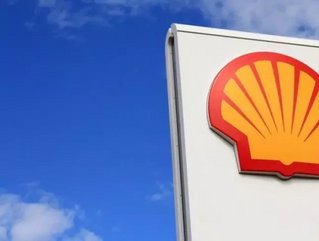Three innovative ways Shell is using big data

Amid rising costs of extraction and the turbulent state of international politics, the oil and gas industries turn to big data to ameliorate the present-day difficulties of conducting their business.
Big data is the theory and practice of collecting masses of information and using sophisticated computer analytics to make sense of it all. In business, it is used to turn data into purchases. In the case of the oil and gas industries, specifically Royal Dutch Shell, big data has many applications from beginning to end of their product cycle. Bernard Marr enumerates some of these in Forbes.
Since the advent of big data, Shell has been developing the idea of the “data-driven oil field” in order to bring down the costs of oil extraction—the industry’s biggest expense.
Related Story: In Its Acquisition of Careerify, LinkedIn Chases Big Data
1. Surveying and forecasting: Surveying potential oil sites involves measuring seismic movement. When seismic waves travel through the underground distorted, this means it’s traveling through oil or natural gas. In the past, thousands of readings were taken but technology now allows for millions of readings—sharply increasing the amount of data that is recoverable.
According to Marr, “Shell uses fiber optic cables, created in a special partnership with Hewlett-Packard, for these sensors, and data is transferred to its private servers, maintained by Amazon Web Services.”
The increased amount of data creates a sharper, more accurate vision of what lies underneath. This information can be used to calculate more trustworthy figures about the particular oil field’s production capability. As a result, resources can be properly allocated.
2. Monitoring equipment: This application is borrowed from the mining industry, which outfits its mining equipment with sensors collecting data about its performance and comparing it to aggregated data. This “big” data is then used to determine whether parts need to be replaced and when. Shell does the same thing with its exploration equipment. This tactic minimizes the time equipment spends offline due to breakdowns. Consequentially, overheads are reduced.
Related Story: Big data apps can mean big business
3. Increase the efficiency of the transport, refinement and distribution (retail) of oil and gas: Shell is organized “vertically,” meaning that they are involved in each aspect of their energy production from extraction to sale to the consumer for car fuel or home heating. Refineries have limitations and fuel must be produced as close as possible to where it’s sold in order to minimize transportation costs
To this end, “Complex algorithms take into account the cost of producing the fuel as well as diverse data such as economic indicators and weather patterns to determine demand, allocate resources and set prices at the pumps,” writes Marr.
These three dimensions related to oil production: surveying and forecasting, maintaining equipment and transporting it to the consumer form the “big picture” of the business. The more the big picture, of any company, is synchronized the more robust its competitiveness.
Big data analytics allow for the close examination and monitoring of the separate aspects of the big picture. Models can be built and analyzed to determine how minor modifications in one area can make a big impact in another. The more data an organization has about its business components the more realistic a portrait of reality it can create, and thus, the better-backed decisions it can make.
Bernard Marr is a best-selling business author, keynote speaker and leading business performance, analytics and data expert. His latest books are ‘Big Data‘ and ‘KPIs for Dummies‘.






